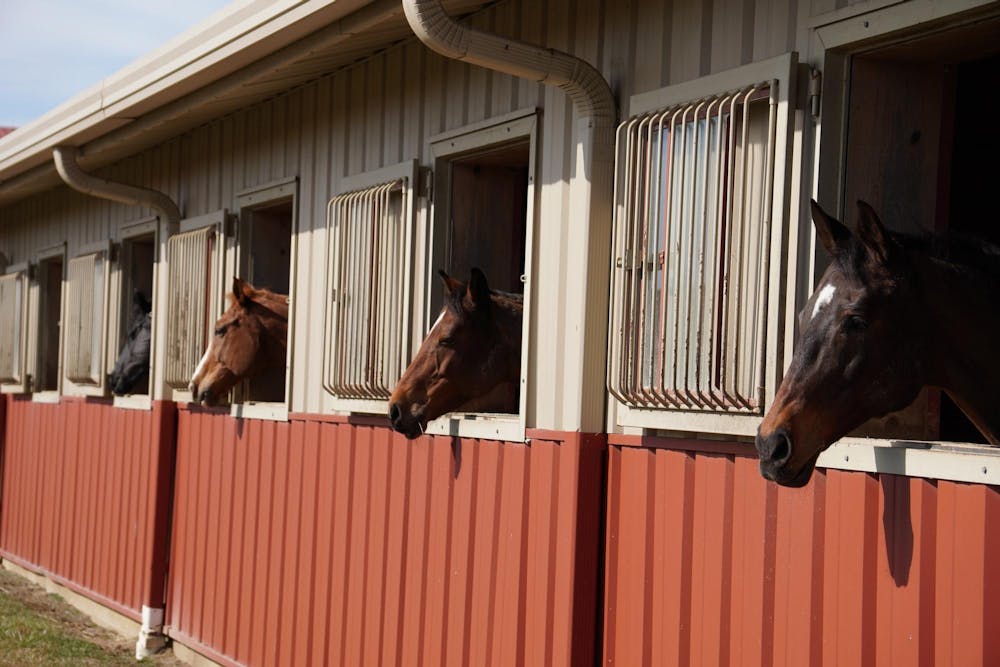Horseback riding, something that can be enjoyed as a hobby or sport, has become much more to many people who face physical and social barriers.
In recent years, Otterbein University has started an Equine Special Olympics team to extenuate just that.
Those with physical and social disabilities across America are seeking Professional Association of Therapeutic Horsemanship (PATH) certified facilities to ride at because of the benefits promised. PATH, is committed to the advancement of equine-assisted services for lifelong impact. PATH defines themselves as "leads in the advancement of professional equine-assisted services by supporting our members and stakeholders through rigorously developed standards, credentialing and education.”
According to PATH, “The benefits of equine-assisted services have been recognized for a long time. Partnering with horses can have a major physical and emotional impact on people with a wide variety of physical disabilities, cognitive delays, or emotional challenges.” PATH works together with Equine Special Olympics to ensure each rider is able to get the most out of therapeutic riding.
At Otterbein, the Department of Equine Science offers a Therapeutic Riding Course that engages students with therapeutic riding. In the course catalog, the class is described as a way to learn about therapeutic riding and "students gain practical experience in developing lesson plans and instructing therapeutic riding lessons."
Steffanie Burk, the head coach of Otterbein Special Olympics team has seen firsthand the benefits of therapeutic riding. Burk is an academic scholar and professor at Otterbein, who has done multiple research studies based on the effects of therapeutic horseback riding.
Within Burk's research she has studied the effects of therapeutic riding for children with autism and the effects of the horse when used in therapeutic riding programs. “The horses’ movement is like walking in the way that your pelvic bone moves. When the horse is walking, the pelvic bone moves in a very similar way that it does when you walk" said Burk.
Therapeutic riding is also being credited to helping those with social disabilities. Burk says she uses group lessons as a chance for socialization or for building collaboration skills. Burk said, “Things like talking to the horse can be so good for kids.”
PATH also reports "People with learning disabilities have the chance to learn through visual, auditory, and kinesthetic methods while learning to ride or drive a horse. The horse’s response to the aids given by the rider or driver is natural positive reinforcement and helps participants build skills.”
This past September, Burk took the team to the Equine Special Olympic State Championships in Springfield, Ohio, to show off the horses used in their therapeutic program. The team came home with five gold medals.
Jocelyn Dulaney, a sophomore majoring in psychology, has been volunteering at a local therapeutic barn. She said, “It helps me just as much as it helps them. It’s an experience that will always fill you up with joy. Working with children has equipped me with multiple life skills and lessons. It's the best feeling when you see a child be able to overcome a challenge and to see their confidence go up. Therapeutic riding is something that I believe everyone should get involved in.”
Kids with social, emotional, physical, and cognitive disabilities are now being granted the opportunity to enjoy the sport of horseback riding through Special Olympics and by PATH, as they are paving the way to accessibility.








